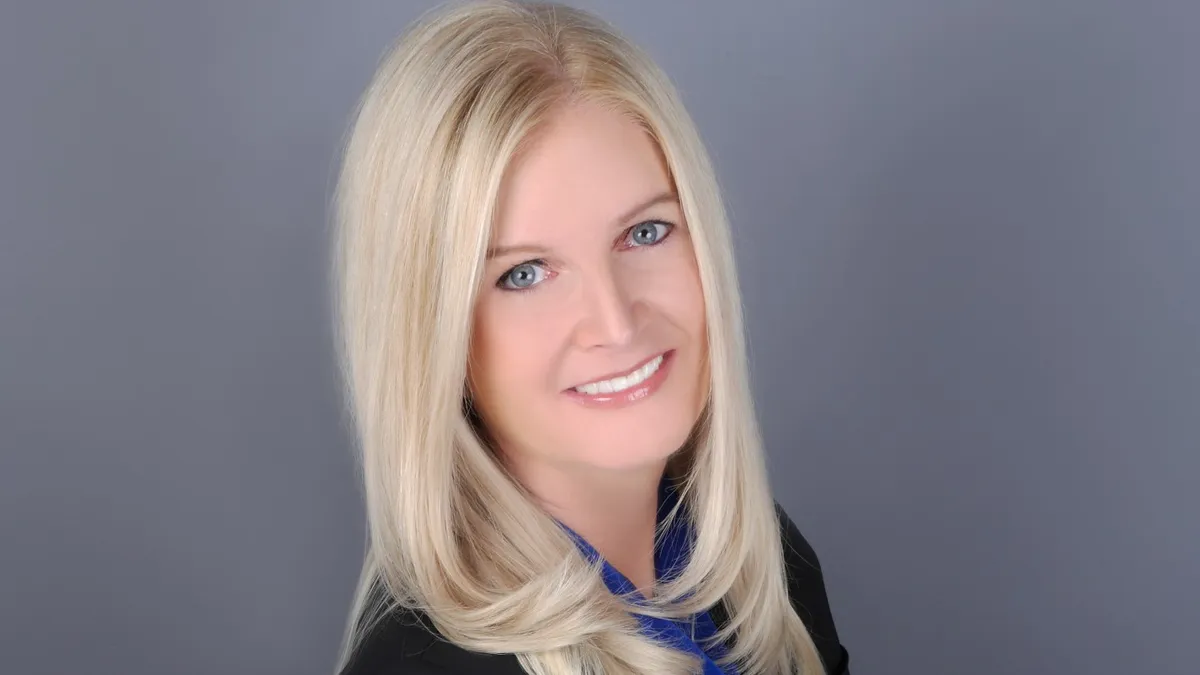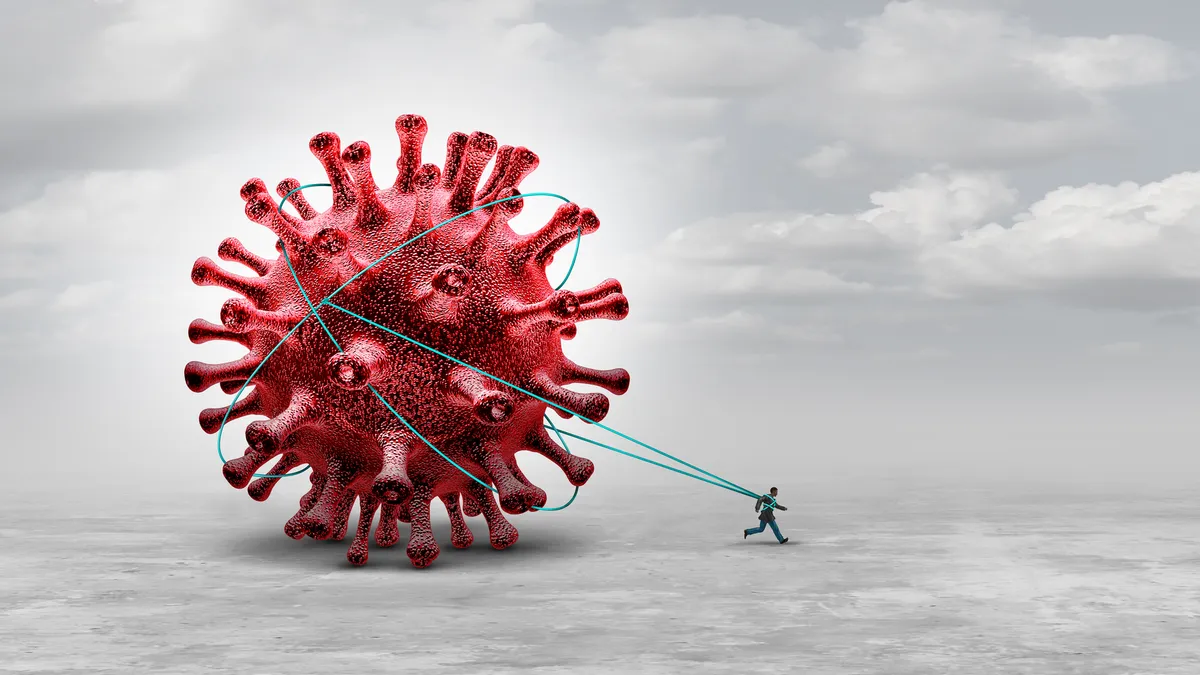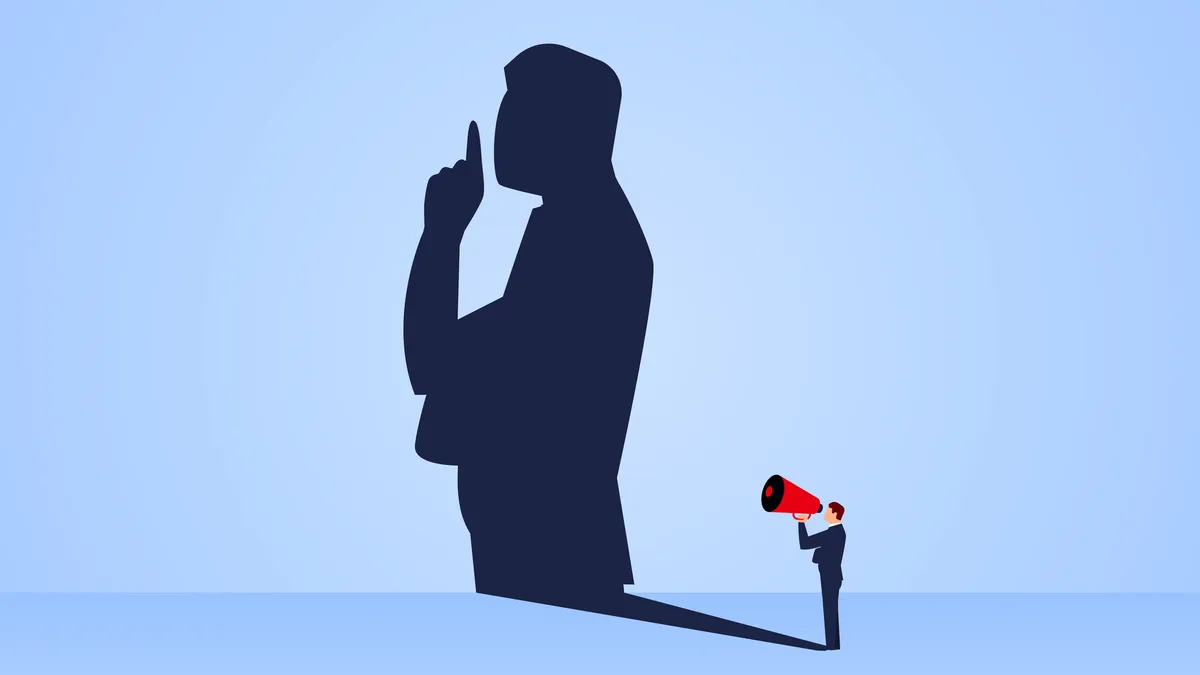Laura Randa calls her 20-year-old daughter, Lauren, a "rock star," and rattles off Lauren's many accomplishments without much prompting: She's been a nationally competitive figure skater, was a National Merit finalist and is a student at University of Michigan Ross School of Business.
But something unexpected put a hitch in Lauren's upward trajectory.
"COVID hit," Randa says plainly. And because of the pandemic, face masks emerged everywhere.
Mandatory face coverings were a minor inconvenience for some and a political flashpoint for others. But for people like Lauren, who has hearing loss and reads lips, it hampered her ability to communicate.
"The stress was challenging to her," Randa says. "And the clear masks never made it to the classroom."
Stress and the pandemic have gone hand in hand since March 2020. Rates of depression, anxiety and other mental health conditions have skyrocketed over the course of two-plus years, and demand for mental health professionals has never been higher.
But for people with disabilities the need is even more profound: According to the CDC, adults with disabilities say they experience frequent mental distress almost five times as often as those without disabilities.
That's why, in 2021, Randa founded Toivoa, a platform company that aims to provide evidence-based mental health therapy in a way that's accessible for people with disabilities.
"People are waiting two to three months to see a psychologist. And on top of that, we're talking about the disability population, and lack of access to care is even more challenging," Randa, a two-time PharmaVoice 100 honoree, says. "This is a group of people that uses technology to thrive and survive."
Randa, a career life-sciences professional, dove deep into the world of disability and mental health when she joined the board of the American Association of People with Disabilities. Although mental health apps have become popular over the past couple years, Randa found their accessibility lacking.
"There's lots of mental health apps out there," she says. "But all of those that are currently on the market do not help patients that need Bluetooth, or closed captioning, or readers or buttons that are certain sizes."
She hopes to change that as CEO and president of Toivoa.
"That's what our proprietary technology does," says Randa. "All my career I was preparing for this."
Preparing for this moment
Randa says Toivoa has three key business areas: developing mental health therapies for the disabled community; creating an accessible technology, which is covered by a provisional proprietary patent; and leveraging a "rich data set in uniquely integrated research initiatives that seeks to improve patient care … to speed discovery and development for disabled patients."
With an impressive pharma resume, Randa knows a thing or two about getting products to market.
"I've done 37 different drug, device and vaccine launches throughout my 25 years in pharma as a commercial executive at GSK, Novartis, Abbott and at Regeneron, where I was the market access strategist for Dupixent and worked very closely with Len Schleifer [Regeneron founder and CEO]," she says.
But it's not only her pharma experience she's drawing from with the launch of Toivoa. For 10 years prior to her career in the pharma industry, Randa worked in state and federal policy for the state of Delaware.
She's also spent a decade connected with Springboard Enterprises — an organization that helps women entrepreneurs accelerate and build life sciences and technology companies — where she serves on the Life Sciences and Women’s Health Innovation Councils.
And perhaps most importantly, there's the personal connection Randa has had to the disabled community since Lauren was diagnosed with bilateral sensorineural hearing loss at 6 years old.
That unique combination of experiences culminated in the creation of Toivoa. For some people, their career paths are linear, heading straight up a ladder. Others bounce around from one discipline to another until they land on something that feels right. But for a lucky few, their professional and personal experiences converge into a moment that feels both serendipitous and inevitable.
"Where I am now takes all my experience and kind of has a bow around it," Randa says. "It takes the commercial experience, it brings the operational and the strategic from all those different kinds of vertical areas, and coupled with a vision and a passion to really help and support this disability population."
A huge unmet need
The disabled community is the largest minority group in the United States, with one-in-four people — 61 million Americans — living with a disability, the CDC says. Still, other people will experience disability in some way throughout the course of their lives, whether it's from a progressive illness during old age or a temporary injury.
The huge number of disabled Americans combined with the higher rates of mental health challenges among that community means there's not only a profound unmet need for accessible care, but a vast, untapped population that's looking for services.
"I had to start building the company to make sure that all those people have the same access to care that you and I have right now."

Laura Randa
CEO, Toivoa
When Randa conducted market research with 3,000 disabled patients to get a better look at their mental health needs and accessibility barriers, that unmet demand came into stark focus with every person's story.
"Every time I talked to somebody, everybody would say, Laura, you've got to go do this," she says. "And I think at some point — I probably was 20 in of the 3,000 [people] — I finally said, ‘I gotta go do this.’ I had to start building the company to make sure that all those people have the same access to care that you and I have right now."
In addition to a web-based interactive platform, the company will initially focus on a handful of disabilities, including hearing loss and long COVID. Randa says they'll be announcing a strategic partnership over the next month "that will be key to the investment strategy."
Randa also says that while they'll use the FDA's Emergency Use Authorization to be on the market by this time next year, they’re also reserving money for a de novo or 510(k) submission with the agency and conducting full clinical trials.
Randa says there's a lot of "newness" to what she's doing, from the evolution of digital therapies to providing resources to an underserved group, and she's excited for the possibilities.
"It's really about shaping a brand-new market and shaping a new area for a very large sub population," she says.



















